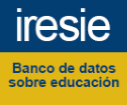Didactics and its requirements from the cultural-historical. Methodological scientific reflections I
Keywords:
didáctica, enfoque histórico-culturalAbstract
This article is a continuation of the previous one in which we present essential ideas of cultural-historical theory in its Vygotskian version of human development, which, ethically speaking, we consider as a theory of social commitment, since it explains how man is social from the beginning of his life. their development, building their individuality, their personality throughout life from the culture transmitted by others. In reciprocity, this same man cooperates with others in the construction of his personalities. This indisputably humanistic approach in its aspirations has contributed to education its valuable theoretical and methodological constructs with significant results in the scientific order in numerous pedagogical and didactic investigations in Cuba, identified and recognized, likewise, in other parts of the world. The idea that it is education that leads development is the basic postulate of this approach, which distinguishes it from traditional conceptions of human development and places in the hands of teachers an extraordinary wealth of ideas to reflect on and debate about. How to continue placing the educational project that we build day by day in the classrooms at the height of our time. These are the intentions of the two articles that, in the rather didactic-methodological order and derived from the first, we present to you as part of their continuity. The reader will find in this work and in the following contradictions and stereotypes whose purpose is to help identify aspects about which it is essential to know their experiences and opinions to produce the necessary debates and consensus.








